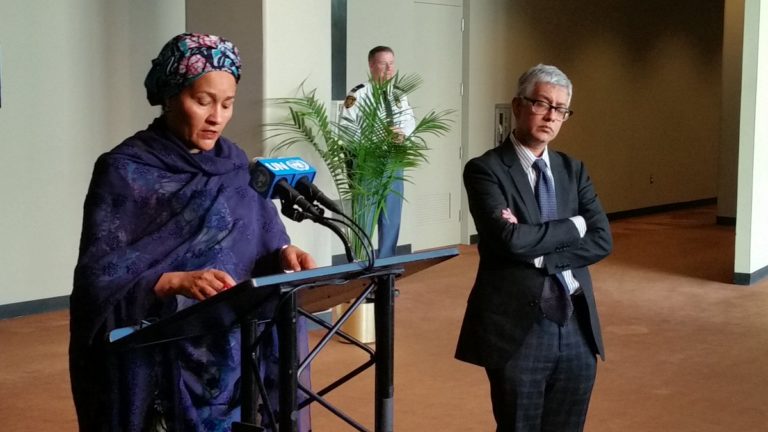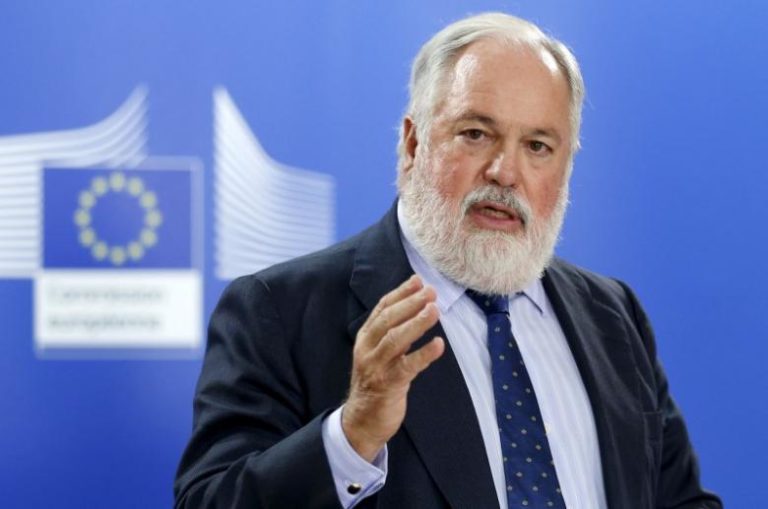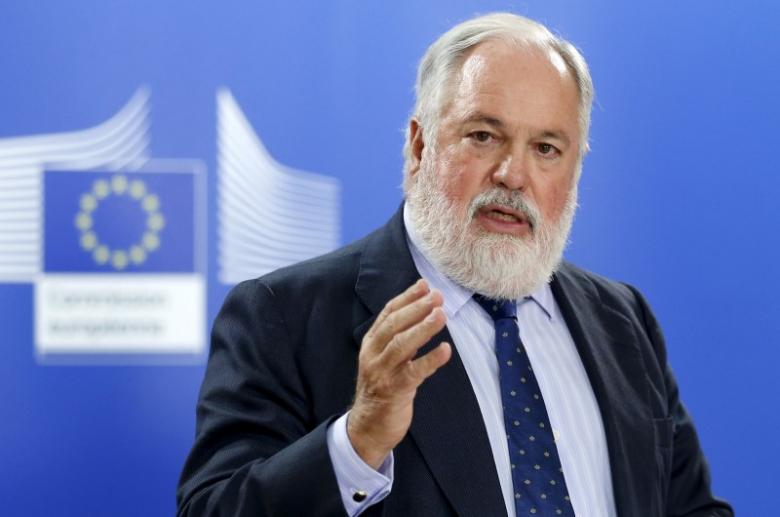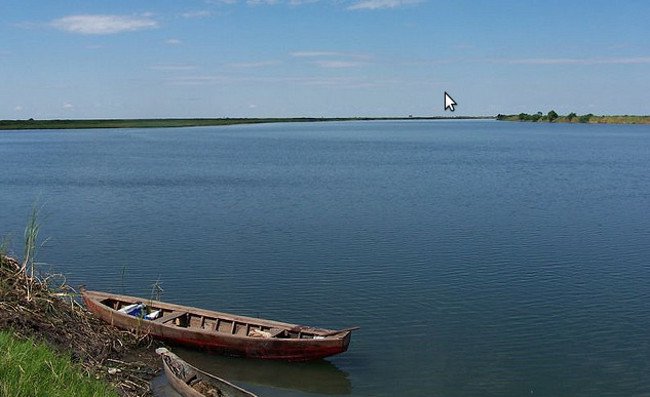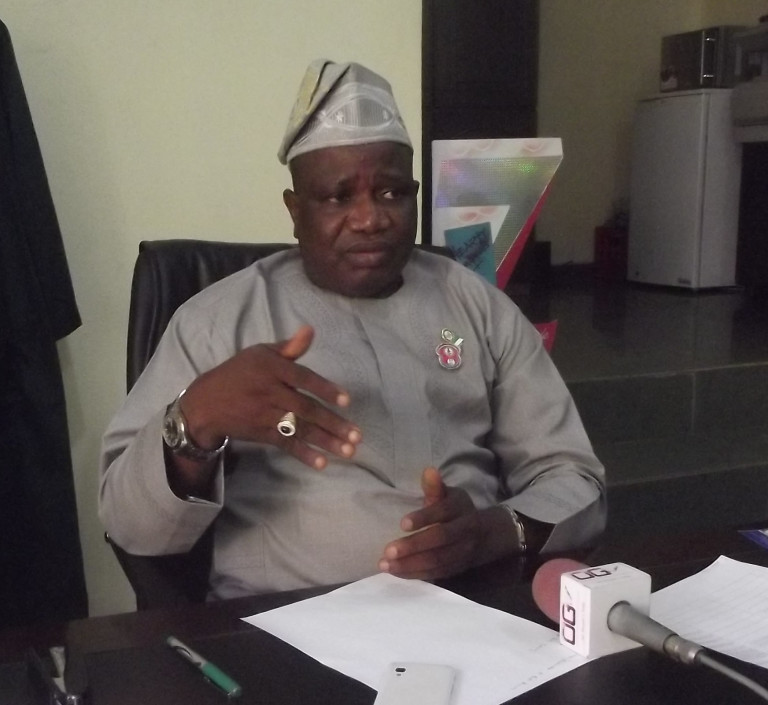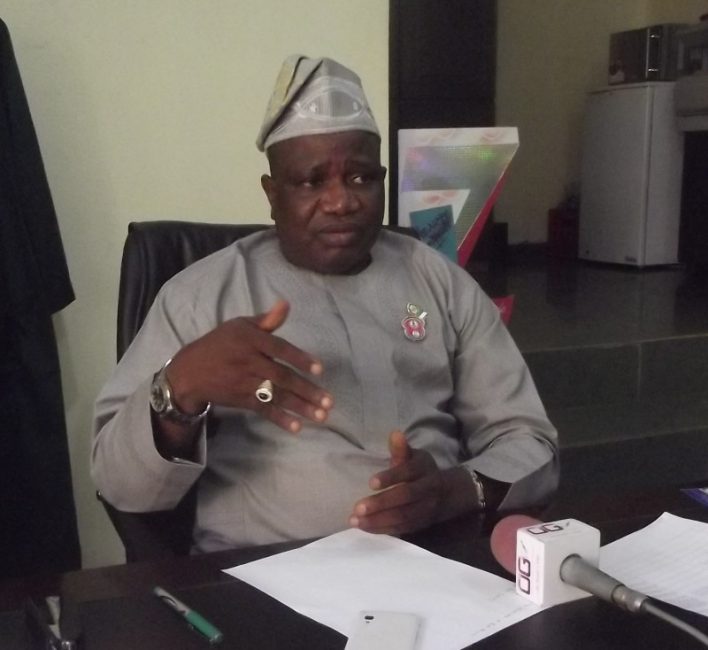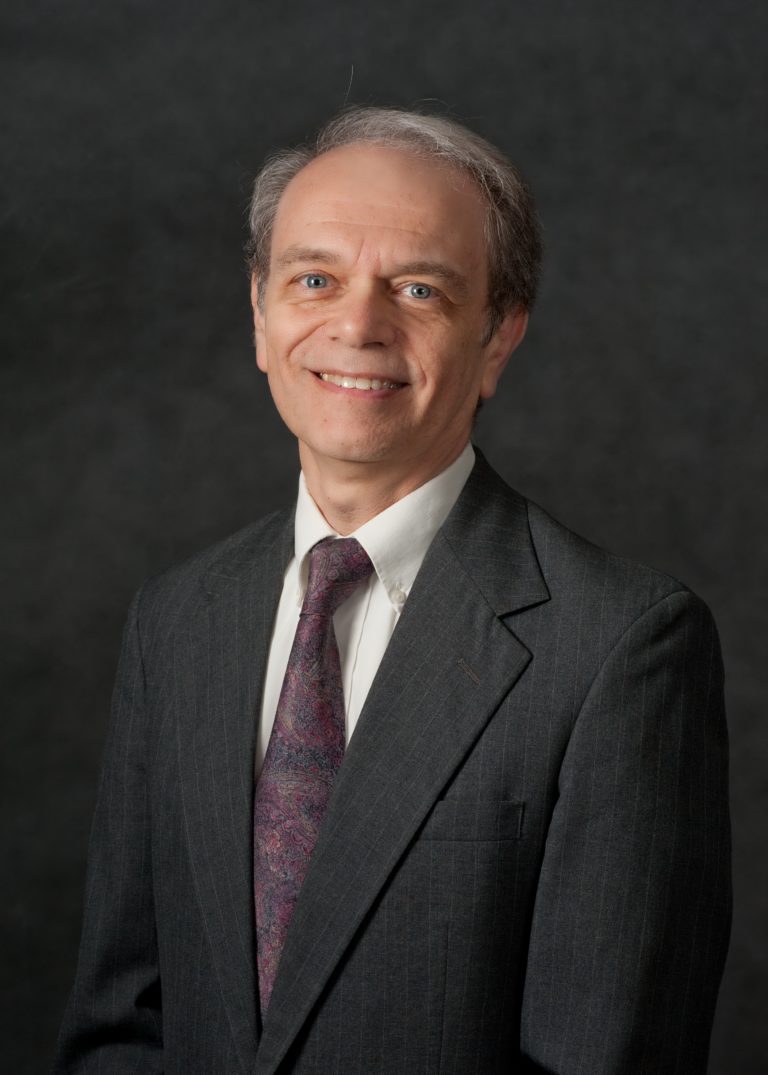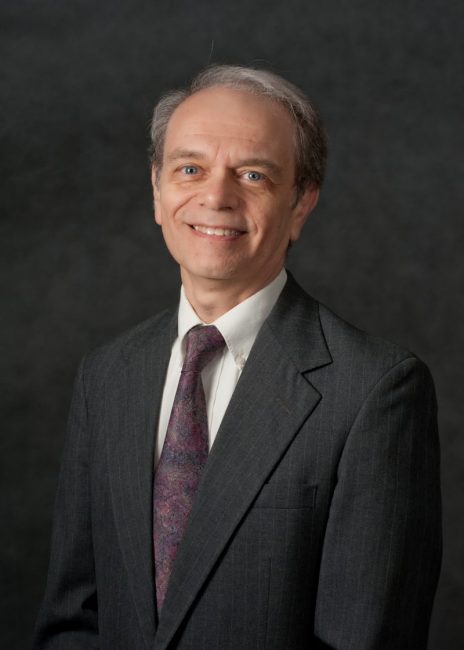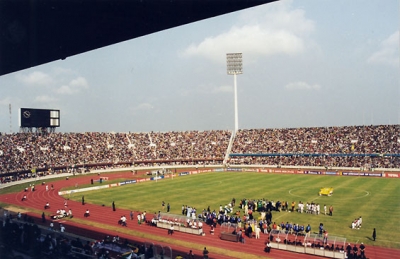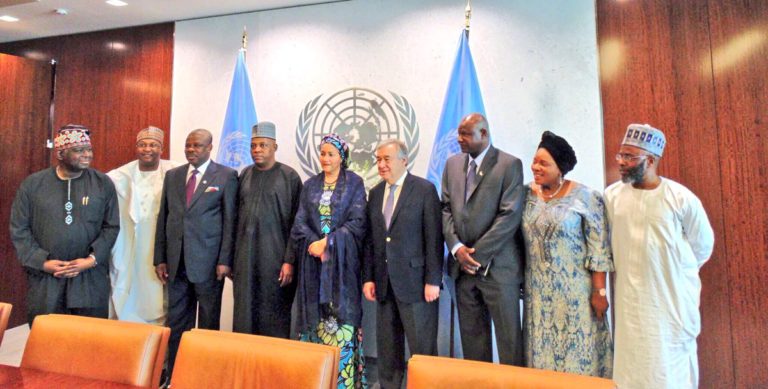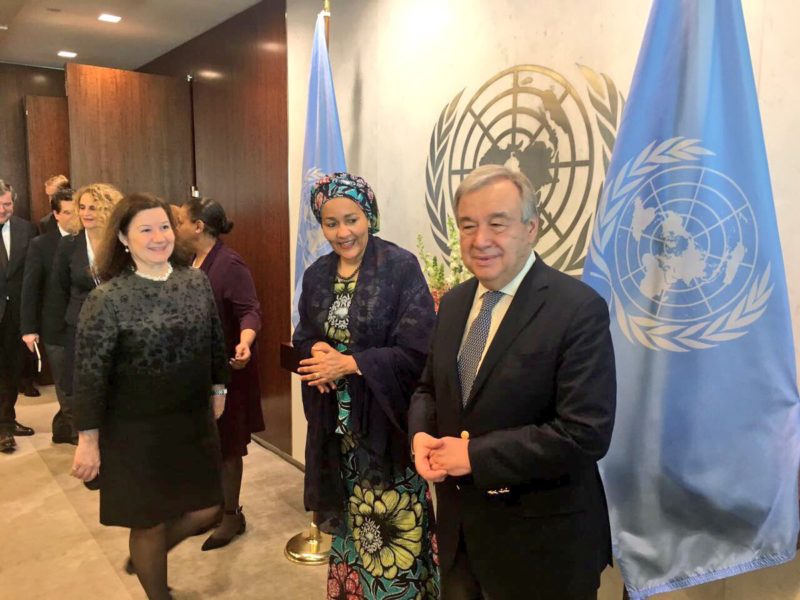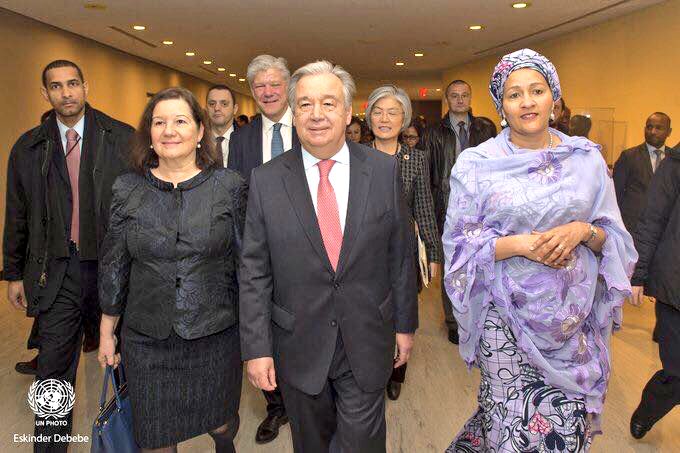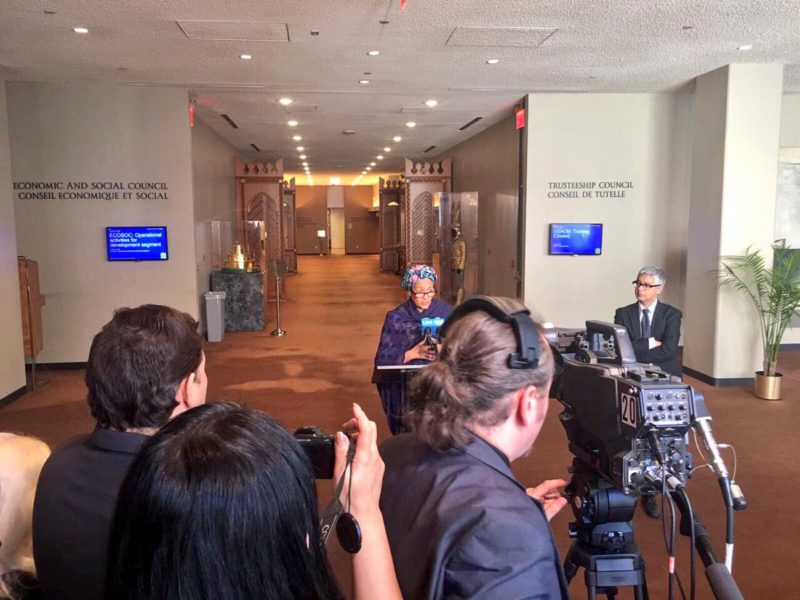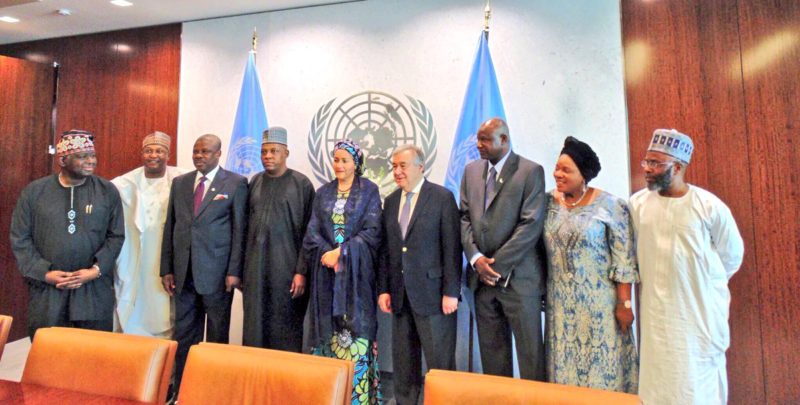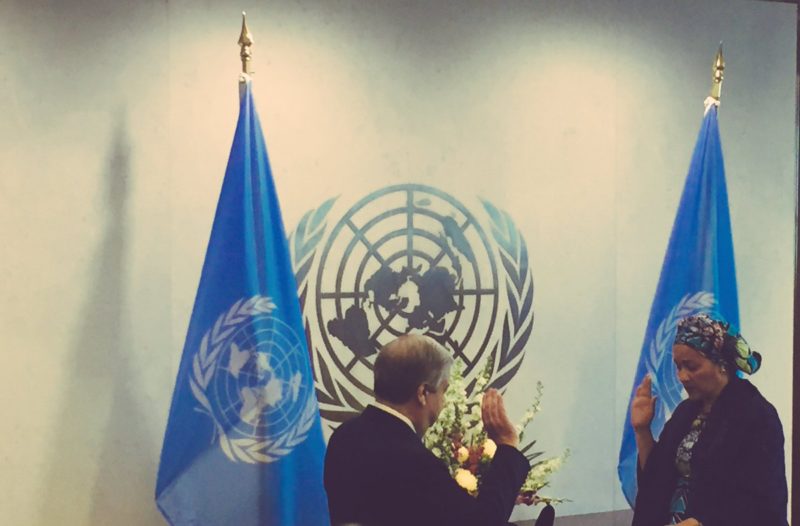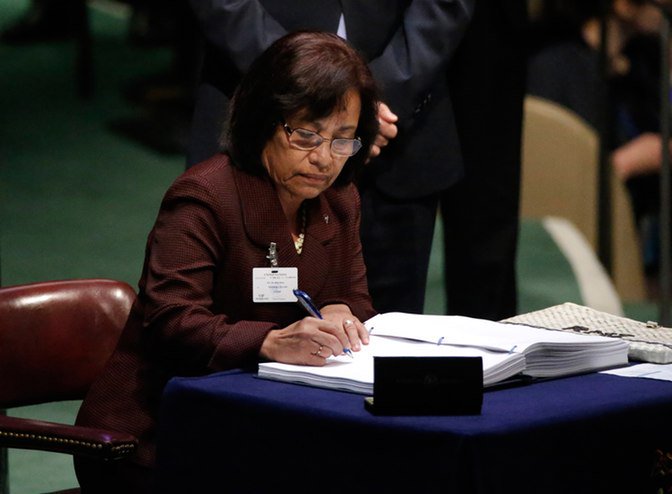Following an address to the 2017 ECOSOC Segment on Operational Activities for Development, UN Deputy Secretary-General, Amina Mohammed, in New York on Tuesday, February 28 2017 encountered with the press, where she shed some light on what is expected of her as an assistant to António Guterres, the Secretary-General
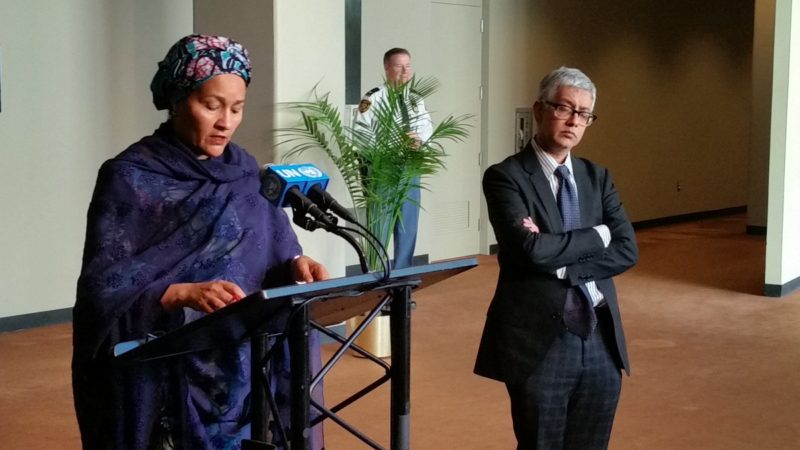
Amina Mohammed: I am delighted to be here. My first interaction is coming, of course, off the back of the ECOSOC segment and that is so important to us given the thrust of the reform and the development agenda. I look forward to my time here, working and interacting closely with you. Great privilege to return to New York, again, I have to say today, incredibly humbled by the weight and expectations of the Secretary-General (SG) and myself in support of him to actualise his vision.
Today’s world challenges are much more complex and intertwined; we have seen anxiety that is increasingly mounting across the world. I’m grateful to the Secretary-General (António Guterres) for his trust and his leadership, ambitious vision for the Organisation, a vision that focuses on prevention, really looking at the root causes. It requires that we really do take integration much more seriously and work across all the pillars.
I will be focusing primarily on helping the SG to reposition sustainable development at the United Nations and, as he has stated, sustainable development is an end in itself but it is also the best way that we feel that we can achieve universal peace.
I’m attaching great importance to the promise of leaving no one behind, so starting with those that are furthest behind, really looking to see how we can address that in a robust manner that brings everyone into the sustainable development agenda, addressing gender barriers that we’ve seen constantly; that we have achieved some success in that, not enough. We need to go to scale at this point. We also need to empower youth, agents of peace and development. I can say that in the recent 15 months that I have been home, after helping to shape the 2030 Agenda, youth have been the greatest challenge that we have faced but also the greatest potential to finding solutions for peace and development.
I will be supporting the SG in the comprehensive review of the UN development system; this will be in close consultation with Member States.
We have the advantage that the three major agendas that we agreed in 2015, were really from an inclusive process where Member States owned it and lead on it. And so supporting them to get an ambitious response at the country level is one that I believe will have a much easier task than we would have had previously, so therefore, those consultations will be given utmost priority.
We shall become as the United Nations much more fit for purpose. I think this is across all constituencies, not just the UN but we have to lead in that. We provided an ambitious agenda, where most people are struggling with integration, struggling with universality, a different concept to sustainable development and so for that we need to ensure that our partners too, in the civil society and the private sector, are on board and we are all helping countries and not burdening them with a new agenda.
I think over the recent times, the 2030 agenda as I have spent the last 15 months trying to see that at country-level, not just in Nigeria but across the region in Africa, with other agendas like (African Union Agenda) 2063, there is an acute need for us to make sure that we are aligning these agendas and not layering them and burdening at the country level some of the issues that need to be addressed as much, as urgently as possible.
You can count on our utmost commitment to ensure the UN responds in a way that honours our level of ambition, it is an ambitious agenda and once again, just say I’m really happy to be back here in service of humanity.
Take a few questions?
Thank you very much, Deputy Secretary-General, welcome back to the United Nations and your new post. You outlined a very ambitious agenda, which requires, of course, a lot of government support, but also a lot of funding. How concerned are you about the new US administration’s announcement of major cuts, including to the State Department, which helps fund the UN budget? And what would the impact be, since the United States is the largest funder of the United Nations?
Amina Mohammed: Thank you for that. I mean, I think any cuts, wherever they come, are of great concern with an agenda that is so much more ambitious, and we have many more complex issues to deal with. I think the important thing that we need to do is to continue to engage with our partners and to show how important it is not to decrease but to increase, and find different ways of doing so. It may not be in the traditional ways forward. I think the UN agenda for transformation reform also speaks to much more accountability for results, and I think, you know, Member States would like to see that. So I am optimistic we can engage. I have to say, in the past few months we have not often seen when we bring together our global community a good response to some of the humanitarian crises. But just recently in Oslo what did we see? Once it had been laid out what pathway countries were looking at to address the challenges in some post-conflict areas, we saw an incredible comeback for support, including the United States, to those crises. So I am, of course, concerned, but I believe that we can find a way of leveraging other resources. Same Member States, different ways, different means.
My question is about the famine drive – the $4 billion famine drive. Can you speak to this, what you expect it to be a success, particularly in your native Nigeria?
Amina Mohammed: Well again, you know a huge crisis. We need to be ahead of the curve and not behind it, and so we do press for the support we need in those four countries. This famine is not just going to be limited to them if we don’t address it in a very urgent way. I think that the results that we saw in Oslo recently are warming and I think that this is showing that there is a way forward on some of this. We need to listen to some of the issues that were raised there. Again, bringing agencies and partnerships together in a much more coordinated and coherent manner, will help us get further, leveraging resources from different constituencies now, different partnerships in a global agenda, this is becoming more complex, but it is bringing in more returns and so again, we are not taking our foot off the urgency pedal, it is really urgent that we get much more, much more quickly, but so far the (outings?) have proved to be positive.
Do you expect problems in terms of delivering that kind of aid in parts of Nigeria?
Amina Mohammed: No, I mean my experience has been that, of recent, where one has seen some of these challenges of coordination, they have been addressed pretty quickly, both at the national level, and at the UN system. It’s a very difficult environment to be in, but at the same time, Nigeria doesn’t just consist of the northeast. It is a much wider arena of processes and support and platforms to do these things. I think they will need additional support, institutional capacity. If you look at what has happened in the northeast there, yes, institutions have been broken down, human resources capacity has been reduced, but there is a lot of willingness to come on board and help, a lot of goodwill. It does have to be better coordinated, and I think that is what we are pushing on right now.
Thank you very much for this opportunity, and welcome back. What importance do you give to the prevention agenda and the reform launched by Mr. Guterres?
Amina Mohammed: Well, it is right up front there. The results that we want to see are actioned on the 2030 agenda. Looking at the root causes, if you look at the integration of the 2030 agenda, you will see a lot of prevention work in there, a lot of addressing the jobless, inequalities, improving peoples’ economies beyond GDP. Looking at partners like the private sector, not just CSR but seeing how their business models themselves can change and also take care of the bottom line which of course is what private sectors and business can do. So I think the prevention agenda gives us an opportunity to look at the three dimensions. We always say there cannot be peace without development, and no development without peace, and human rights at the centre of that. So bringing it closer together is work that we will have to do, and keeping a conscious effort that that is the result that we want to see, that we don’t see these conflicts again which in many, many cases, investments of scale would have prevented.
Reform?
Amina Mohammed: Oh the reform, well the reform has already started. As you can see, the resolution we got on (QCPR?) was a pretty ambitious one. It is our job now to facilitate Member States to put teeth into it, so that we have a robust response to actually delivering on these agendas that have got many, many different issues, not just the transparency, accountability and the efficiency of the system, but we have also got to see how we deal with resources as well, human and financial.
I saw that you worked on the Green Bond in Nigeria, and I wondered whether you think that that is a model that other emerging markets can use to secure projects, and also do you view it as part of your mandate to work on the issue of Security Council reform, in the sense of making it more representative, and having more countries represented on it?
Amina Mohammed: Well, on the Green Bond, I have to say it was an exciting initiative to use, to leverage, the implementation of the NDC. The first thought was: how do you do that, beyond the budget, and to bring this whole integration at country level. So, the sovereign Green Bond which will be the first ones issued at the end of March in emerging countries is very exciting, and I think that the model that should be taken there is that countries themselves need to go through a process that strengthens integration and that they institutionally can then rise to the opportunities of other financing coming into the international Green Bond market. And that is huge. It has also brought in a lot of the private sector into this, in a way, I think, that is constructive and gets government providing the enabling environment but the private sector really taking things to scale. It has to be about jobs and our economies improving in Africa, so yes, I do think that that is important.
On the second question on security reform, that is something that I will work to support the Secretary-General. I think he has given me a huge amount to deliver on. I think that Security Council reform is a critical part of what we do in the next few years and somehow we have to balance that if we to address the prevention agenda.
Thank you very much.

